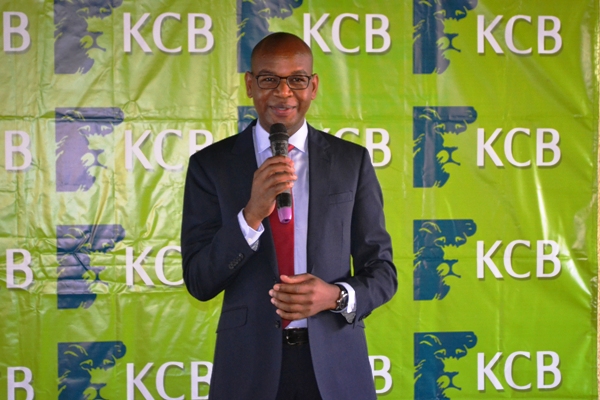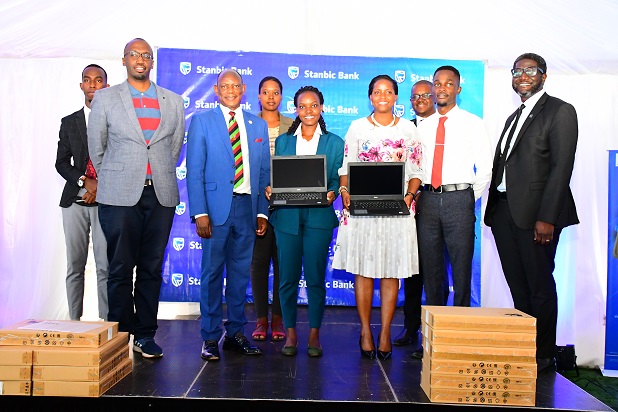BY JOSHUA OIGARA
Justifiably, 2017 was a year that can be summarised in three words: uncertain, changing and challenging.
Looking at the East African region in the past 12 months, economic conditions deteriorated largely in Kenya and South Sudan, with the rest of the countries closing the year with a not so favourable story to tell.
Geopolitical instability remained a major threat to the region’s near-term economic growth.
A prolonged electioneering period in Kenya brought a slowdown in expansion across the East African region. We however see some recovery coming through during the first half of 2018.
The full effect of the law capping interest rate in Kenya marked by a slow business environment on account of the general election negatively hit businesses and the economy at large.
The rate cap subdued private investment owing to the drop in lending rates. As such, overall credit growth to the private sector reached its lowest levels in mid-2017.
In South Sudan, hyper-inflation impacted on business but we remain optimistic that the political situation will take a turn for the better, creating a conducive operating environment. It is worth noting that the Rwanda elections passed uneventfully, which was a positive indicator for business and investment in the region.
Unsurprisingly then, most business executives would report that conditions for the financial services industry have worsened over the past 12 months, a fact that is clearly borne out in the industry’s financial performance this year.
But the shockwaves have not solely been external. Financial institutions have also been looking inward, implementing changes to their core operations — from shortening transaction times to integrating sustainable innovation into their product offerings— re-evaluating the entire system itself.
Undoubtedly, the current circumstances are all quite challenging to work effectively in. The New Year will unleash its own set of challenges, with a series of expected regulatory changes beckoning.
Economic Outlook
The general outlook for 2018 is favorable with an expected improvement in economic conditions and a pickup in investments across the East African region.
We are optimistic and looking forward to a more dynamic year in 2018 across East Africa. 2017 was a relatively tough year with a prolonged election period in Kenya and with that behind us now, we expect an uptick in economic activity in the next 12 months.
Financial Industry Outlook
Two things will define the financial services sector this year—a new regulatory environment and increased investments in the financial technology (Fintech) space. The global financial system has gotten into a new regime—the International Financial Reporting Standards 9 (IFRS9)—which took effect on January 1, 2018.
Under the IFRS 9, the most fundamental change is recognition of credit risk losses. Previously, financial institutions recognize a loan’s risk at the point of default but now they will be expected to recognise this risk at the beginning and during the entire loan’s life cycle and make the necessary provisions. This could have an impact on profitability and capital provisions. We do not anticipate a shrinkage in credit or any major shock to our business as this is something we have over the years been preparing for and making the necessary adjustments. KCB is adequately capitalized to fit in under the new guidelines.
We also expect to see the industry move deeper into the financial technology space. The future lies in leveraging technology to drive efficiencies in our operations in order to serve our customers better with relevant products that meet their expectations.
Since the introduction of the caps, credit to the government has increased significantly with growth in credit to the government averaging about 15 per cent compared to the 2.3 per cent to the private sector.
We are glad that the regulator has indicated a willingness to reassess the interest cap position. We are optimistic that all actors will reconsider the caps in the best interest of our customers when the time comes to relook at the regulatory environment.
Indeed, it has been a difficult year financially, with headwinds in all of our markets. However, it was also a year when we decided to substantially transform for the future.
Our take is that banking is much more than a current flow business; banks transform short-term actions into long-term value for stakeholders. Banks need to manage for the long term game, through the cycles, even as they adapt in the short term through test-and-learn experimentation.
Given the technological and market changes roiling the industry, the coming 2-3 years may well bring even greater dispruption to banking. To play the long-term game, each organisation needs to determine which developments to prepare for and how, based on its particular assets, profit pool, business model and operating model.
Anxiety about these massive shifts in the financial services sector may lead many bank management teams and boards to focus overwhelmingly on the short game, especially the next quarter’s performance. Yet in many ways, I am convinced that the underlying business remains a long-term game.
With IFRS 9, opportunities are stemming for financial institutions in terms of improved governance in accounting. It is key that as a sector, we ensure a smooth transition for customers during this period.
Waiting indefinitely to see how these themes unfold is not a viable option. Instead, banking will benefit by committing to an explicit set of investments that prepare their organizations to seize the opportunities that unfold.
KCB Business Outlook
As a business, our growth prospects are strong. Rating agency Standard & Poor’s (S&P) last month affirmed KCB Group B+ stable rating. This was driven by resilient and balanced portfolio of businesses, strong capabilities and a good position in most of the markets the bank operates in. Our business fundamentals remain strong. We remain optimistic and true to our strategy, even in the face of challenges. As the business environment evolves, it is important for us to expand its revenue streams to remain competitive. This aggressive focus on digital channels leveraged on our Fintech strategy is paying off.
We will continually manage our capital and risks to keep the business growing while delivering on our targets. The future lies in leveraging technology to drive efficiencies in our operations in order to serve our customers better with relevant products that meet their expectations.
We are also focused on funding innovation which gives banks an opening to devise new forms of financing for long-term corporate projects, or new forms of financial structuring that benefit SME’s.
Customers should feel that they are completely taken care of at a high service level and with simple, accessible services. We develop and invest in even better customised solutions based on our firm belief that high customer loyalty is the foundation for long-term profitability.
We are keen to strengthen confidence in the banking system and ensure long-term financial and economic stability.
2018success stories are most likely to come from those that are already planning for the years ahead and this is a sign that the New Year holds vast opportunities to break new ground in business and especially in the financial sector.
Mr Oigara is the KCB Group CEO and MD.





